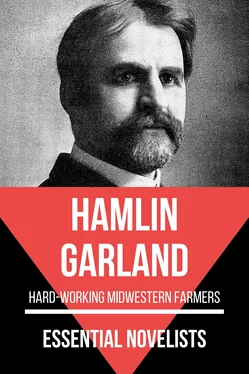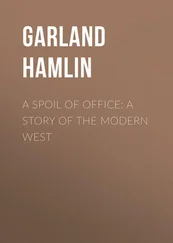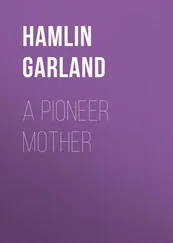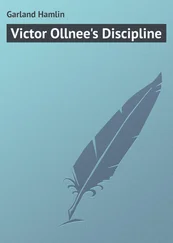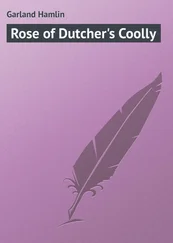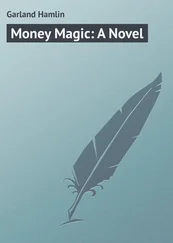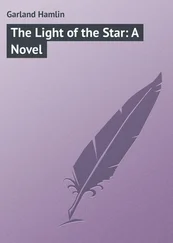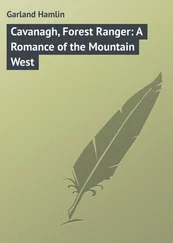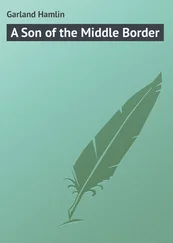In addition to these delight-giving volumes, I traded stock with other boys of the neighborhood. From Jack Sheet I derived a bundle of Saturday Nights in exchange for my New York Weeklys and from one of our harvest hands, a near-sighted old German, I borrowed some twenty-five or thirty numbers of The Sea Side Library . These also cost a dime when new, but you could return them and get a nickel in credit for another,—provided your own was in good condition.
It is a question whether the reading of all this exciting fiction had an ill effect on my mind or not. Apparently it had very little effect of any sort other than to make the borderland a great deal more exciting than the farm, and yet so far as I can discover, I had no keen desire to go West and fight Indians and I showed no disposition to rob or murder in the manner of my heroes. I devoured Jack Harkaway and The Quaker Sleuth precisely as I played ball—to pass the time and because I enjoyed the game.
Deacon Garland was highly indignant with my father for permitting such reading, and argued against it furiously, but no one paid much attention to his protests—especially after we caught the old gentleman sitting with a very lurid example of "The Damnable Lies" open in his hand. "I was only looking into it to see how bad it was," he explained.
Father was so tickled at the old man's downfall that he said, "Stick to it till you find how it turns out."
Grandsire, we all perceived, was human after all. I think we liked him rather better after this sign of weakness.
It would not be fair to say that we read nothing else but these easy-going tales. As a matter of fact, I read everything within reach, even the copy of Paradise Lost which my mother presented to me on my fifteenth birthday. Milton I admit was hard work, but I got considerable joy out of his cursing passages. The battle scenes also interested me and I went about spouting the extraordinary harangues of Satan with such vigor that my team one day took fright of me, and ran away with the plow, leaving an erratic furrow to be explained. However, my father was glad to see me taking on the voice of the orator.
The five years of life on this farm had brought swift changes into my world. Nearly all the open land had been fenced and plowed, and all the cattle and horses had been brought into pasture, and around most of the buildings, groves of maples were beginning to make the homesteads a little less barren and ugly. And yet with all these growing signs of prosperity I realized that something sweet and splendid was dying out of the prairie. The whistling pigeons, the wailing plover, the migrating ducks and geese, the soaring cranes, the shadowy wolves, the wary foxes, all the untamed things were passing, vanishing with the blue-joint grass, the dainty wild rose and the tiger-lily's flaming torch. Settlement was complete.
A Taste of Village Life
The change from farm to village life, though delightful, was not so complete as we had anticipated, for we not only carried with us several cows and a span of horses, but the house which we had rented stood at the edge of town and possessed a large plot; therefore we not only continued to milk cows and curry horses, but set to work at once planting potatoes and other vegetables almost as if still upon the farm. The soil had been poorly cultivated for several years, and the weeds sprang up like dragons' teeth. Work, it seemed, was not to be escaped even in the city.
Though a little resentful of this labor and somewhat disappointed in our dwelling, we were vastly excited by certain phases of our new surroundings. To be within a few minutes' walk of the postoffice, and to be able to go to the store at any moment, were conditions quite as satisfactory as we had any right to expect. Also we slept later, for my father was less disposed to get us out of bed at dawn and this in itself was an enormous gain, especially to my mother.
Osage, a small town, hardly more than a village, was situated on the edge of a belt of hardwood timber through which the Cedar River ran, and was quite commonplace to most people but to me it was both mysterious and dangerous, for it was the home of an alien tribe, hostile and pitiless—"The Town Boys."
Up to this time I had both hated and feared them, knowing that they hated and despised me, and now, suddenly I was thrust among them and put on my own defenses. For a few weeks I felt like a young rooster in a strange barn-yard,—knowing that I would be called upon to prove my quality. In fact it took but a week or two to establish my place in the tribe for one of the leaders of the gang was Mitchell Scott, a powerful lad of about my own age, and to his friendship I owe a large part of my freedom from persecution.
Uncle David came to see us several times during the spring and his talk was all about "going west." He was restless under the conditions of his life on a farm. I don't know why this was so, but a growing bitterness clouded his voice. Once I heard him say, "I don't know what use I am in the world. I am a failure." This was the first note of doubt, of discouragement that I had heard from any member of my family and it made a deep impression on me. Disillusionment had begun.
During the early part of the summer my brother and I worked in the garden with frequent days off for fishing, swimming and berrying, and we were entirely content with life. No doubts assailed us. We swam in the pond at Rice's Mill and we cast our hooks in the sunny ripples below it. We saw the circus come to town and go into camp on a vacant lot, and we attended every movement of it with a delicious sense of leisure. We could go at night with no long ride to take after it was over.—The fourth of July came to seek us this year and we had but to step across the way to see a ball-game. We were at last in the center of our world.
In June my father called me to help in the elevator and this turned out to be a most informing experience. "The Street," as it was called, was merely a wagon road which ran along in front of a row of wheat ware-houses of various shapes and sizes, from which the buyers emerged to meet the farmers as they drove into town. Two or three or more of the men would clamber upon the load, open the sacks, sample the grain and bid for it. If one man wanted the load badly, or if he chanced to be in a bad temper, the farmer was the gainer. Hence very few of them, even the members of the Grange, were content to drive up to my father's elevator and take the honest market price. They were all hoping to get a little more than the market price.
This vexed and embittered my father who often spoke of it to me. "It only shows," he said, "how hard it will be to work out any reform among the farmers. They will never stand together. These other buyers will force me off the market and then there will be no one here to represent the farmers' interest."
These merchants interested me greatly. Humorous, self-contained, remorseless in trade, they were most delightful companions when off duty. They liked my father in his private capacity, but as a factor of the Grange he was an enemy. Their kind was new to me and I loved to linger about and listen to their banter when there was nothing else to do.
One of them by reason of his tailor-made suit and a large ring on his little finger, was especially attractive to me. He was a handsome man of a sinister type, and I regarded his expressionless face as that of a gambler. I didn't know that he was a poker player but it amused me to think so. Another buyer was a choleric Cornishman whom the other men sometimes goaded into paying five or six cents more than the market admitted, by shrewdly playing on his hot temper. A third was a tall gaunt old man of New England type, obstinate, honest, but of sanguine temperament. He was always on the bull side of the market and a loud debater.—The fourth, a quiet little man of smooth address, acted as peacemaker.
Читать дальше
